What women want - from the industry.
Since Kirsten Holm opened K-Bar in 2002, female bartenders have had powerful representation in Denmark. But in spite of this, being a heavily male-dominated industry, female representation still remains relatively low. In light of International Women’s Day, and this year's theme "achieving an equal future in a covid-19 world", we decided to talk to some of the women here in Denmark who have chosen a career in hospitality.
We’ve tasted their talent firsthand, explored their paths to success and asked about possible ways of bringing more women into the industry.
Photos by: Alexander Banck-Petersen & Alexandru Barbu.
NINON DEFALVARD, Bar Manager at STRØM, Copenhagen
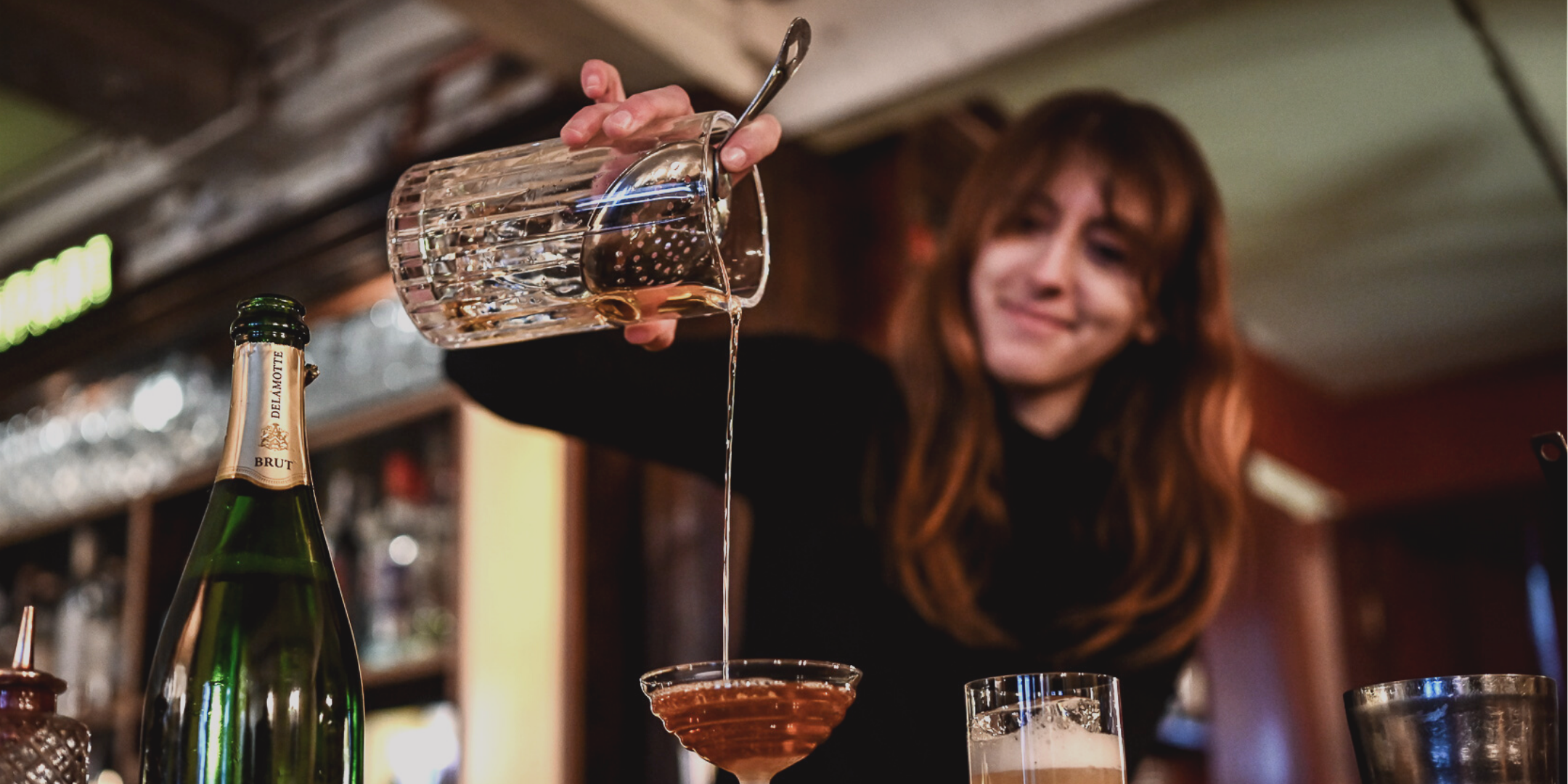
Originally from France, Ninon Defalvard is an award-winning bartender who delivers smiles and drinks at high velocity at STRØM Bar in Copenhagen. Whilst living in Paris, where she was working towards a career in acting, Ninon stumbled into bartending. After landing a position at Le Sans Souci, a cosy bistro that turned into a party bar at night, Ninon knew that there was no turning back.
LM: When did you first realise that bartending was something for you?
N: At Le Sans Souci, we had such a strong sense of friendship, family and community. And it added an extra element on top of the bartending.
It took a few years for me to decide to do bartending full-time because in France it’s not really a career option. Perhaps because there is such a strong gastronomic culture, bartending has always been the black sheep. That is also why I didn’t have strong support from my family when I chose this career. But I always felt extremely good behind the bar.
When I arrived in Copenhagen, I found that the cocktail scene here was a lot bigger than in Paris. It’s evolved tremendously since, but back then Parisians were still very sceptical about cocktails craftsmanship. Bars would have the same ten classics, but the idea that you could experiment with liquids and create something new was almost laughable.
LM: What has been a golden moment in your career so far?
N: I think it’s the Ti’Punch adventure with Clement in 2019. For the first part of the competition, I included the whole bar community here in Copenhagen, and I overcame my fear of social media as it was part of the competition, telling others about myself and my project. I felt like I had a lot of support from the community here. And then there was the excitement of going to Athens after and attending a bar show for the first time, meeting other bartenders and colleagues from all around the place. Meeting so many who share your passion made me feel like I had arrived at Hogwarts.
LM: How have you experienced settling into the industry as a woman?
N: Until recently, I never felt like I identified as a woman in the industry. All the challenges I have faced, I tried to not pin on a gender. I am a bartender first and foremost.
One thing I think can help every girl starting in this industry is to adapt the gear and tools we use and the things we wear to make women more comfortable behind the bar. That can help us to show that we can do exactly the same as any guy. Sometimes I can’t double-shake because the gear is simply too big for my hands, not because I don’t know how or don’t have the muscle (she does). The tools and clothes we wear are all derived from or adjusted to the male body, and it might not make you the most confident, which is a big part of the job: By being more comfortable we gain confidence.
FANNY WANDEL, Bartender at The Barking Dog, Copenhagen
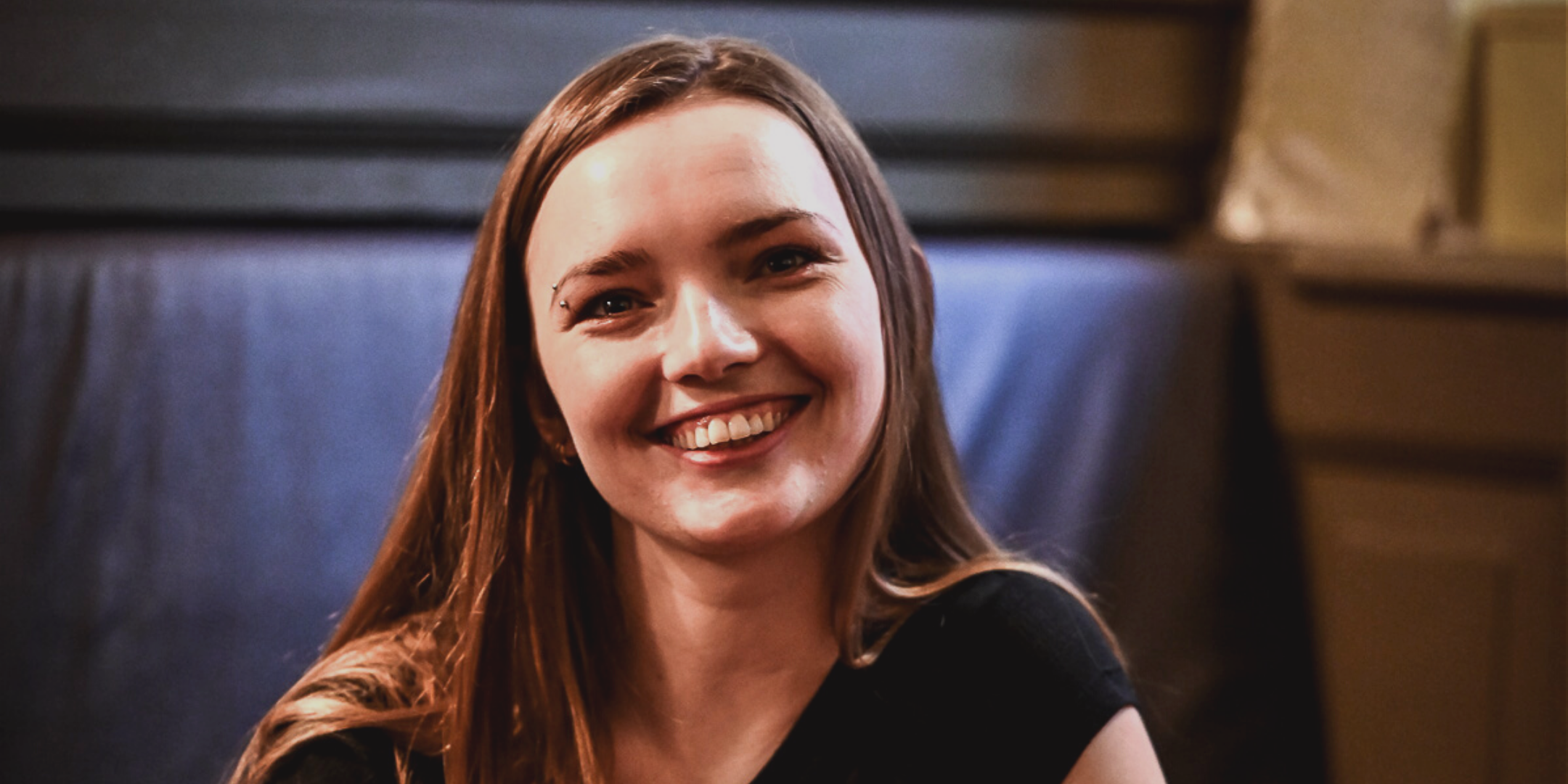
Ever since her return to Denmark, Fanny Wandel has been pushing agave to the people at The Barking Dog. At the 2020 Bartender’s Choice Awards, she was named Improver of the Bar Industry in Denmark thanks to her efforts in organising industry meetings for bar owners and politicians during corona.
LM: You have a degree in Media Communications and Photography, but when did you realise that you had a thing for cocktail-making?
F: I had service experience from before, but never at the level that I experienced when I joined The Barking Dog. Although I was still fairly new behind the bar, just before lockdown, I realised I was capable of being in this industry. We had to build our own cocktail at the bar and I just got really excited about it.
LM: Right after the Spring 2020 lockdown, you and your coworkers organized Industry Nights for bar owners to meet with politicians, and then you went on to win Improver of the Industry in Denmark at the 2020 Bartender’s Choice Awards. That must have built some confidence as well?
F: Industry night definitely proved not only that I can do the regular work, but that I can do events and network and bring the community together. I was really proud of getting a politician to show up at industry night, after months and months of expectations to do so and trying to do my best. It’s hard to navigate politics when you just want to work in a bar! I’m also very proud to have won the BCA award, especially knowing how few women are able to get them.
LM: Speaking of women, what’s your experience been like working within this industry?
F: I used to work in hospitality in Switzerland and there my manager was expressing a lot more overt sexism. He stated that he would never have a woman as a manager, and also, the first guy I worked for had this idea that all the female bartenders were his dating pool to pick and choose from.
In Denmark, sexism is still felt, but it’s a lot harder to pick up on, both from the guests and from the people within your own industry. I’ve heard of other female bartenders achieving something, and at least once someone’s commented that “she’s won because she’s a girl”.
LM: Do you think this is as good as it gets for women?
F: I think there are a lot of options for improving our industry. Actually, my boss once asked me why I thought there weren’t more women in the industry. I think the lifestyle is an intimidating factor because it’s viewed as such a masculine industry. It’s a much tougher environment and I think it’s not the norm to make proper space in the bar during or after service for whatever is considered feminine (emotions etc.). People also don’t really understand how far a bartending job can take you, that you can do competitions, build a global network and so on. Women especially don’t understand their options within this industry.
MIA HJORTH HANSEN, Head of Staff Development & Cocktail Creativity at Gedulgt, Aarhus
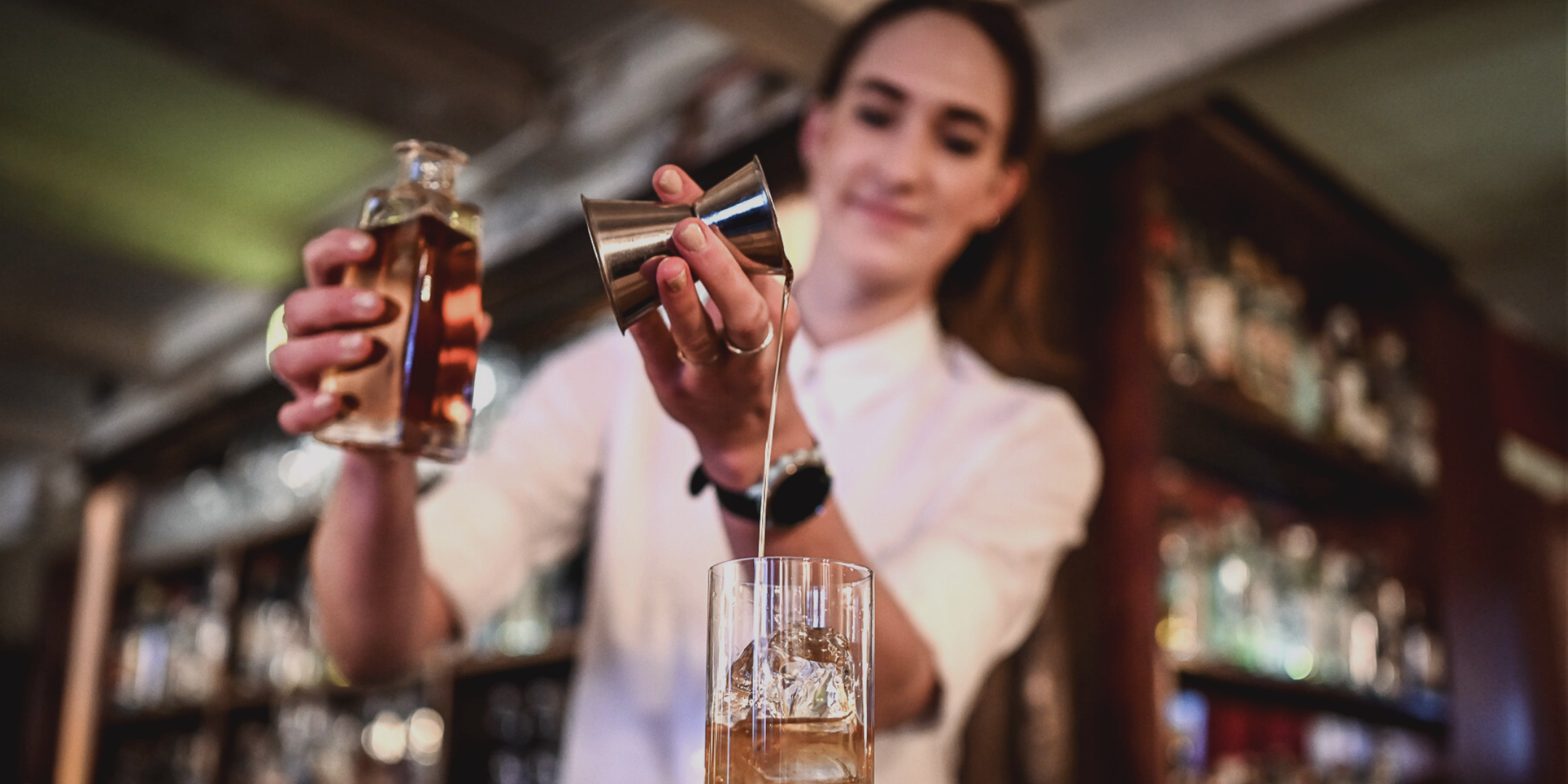
As a professionally educated and experienced waiter, Mia Hjorth Hansen is used to being busy. Her focus on zero-waste and foraged ingredients is implemented in the menu Gedulgt, and most recently, in her own brand of flavourful shrubs, AIM THIRST.
LM: How has your passion for food motivated you behind the bar?
M: At Gedulgt we forage a lot of our ingredients ourselves. Working with seasonal and natural ingredients is a big part of the bar, even if the average clientele don’t know it. There are some funky cocktails on the menu, like 'The American Beauty' served in a bathtub that the general population knows us for. We also have twisted classics and then typically six or so seasonal cocktails.
LM: You’re a professional Waiter and have worked as one for many years. How did that motivate you to go into bartending?
M: In Denmark, cocktails aren’t a big part of the Waiter’s education, we just lightly touched base on a lot of things like coffee, wine etc. I prefer to dive deep into a topic, so after I finished my education, I decided to try out EBS in Las Vegas, and that experience was amazing.
LM: Sounds like you are used to working hard.
Yes, I started working in the service industry when I was 14 at a venue where we used to cater to 1300 people. Then I went to work at Ruths Hotel in Skagen, where the focus on service was a lot higher. I’m adaptable like that. People tend to praise me a lot for my high work ethics. I don’t take the lead, but I will always take an initiative and step up to get things done
LM: Gedulgt has got a pretty balanced team in terms of gender, but that’s not the norm everywhere. Why do you think there aren’t more women in the industry?
M: The hospitality industry overall is very male-dominated. I don’t like the idea of assigning a gender to human values, but I think our industry requires ‘masculine’ values more than ‘feminine’ values in order to make it. I think people like Tanne, my Executive Manager, and myself tend to naturally take on a leading role. But some women tend to make themselves the victim. We should straighten our backs and be proud and encourage other women to join and also break the glass ceiling.
TANNE MORVILLE, Executive Manager at Gedulgt, Aarhus.
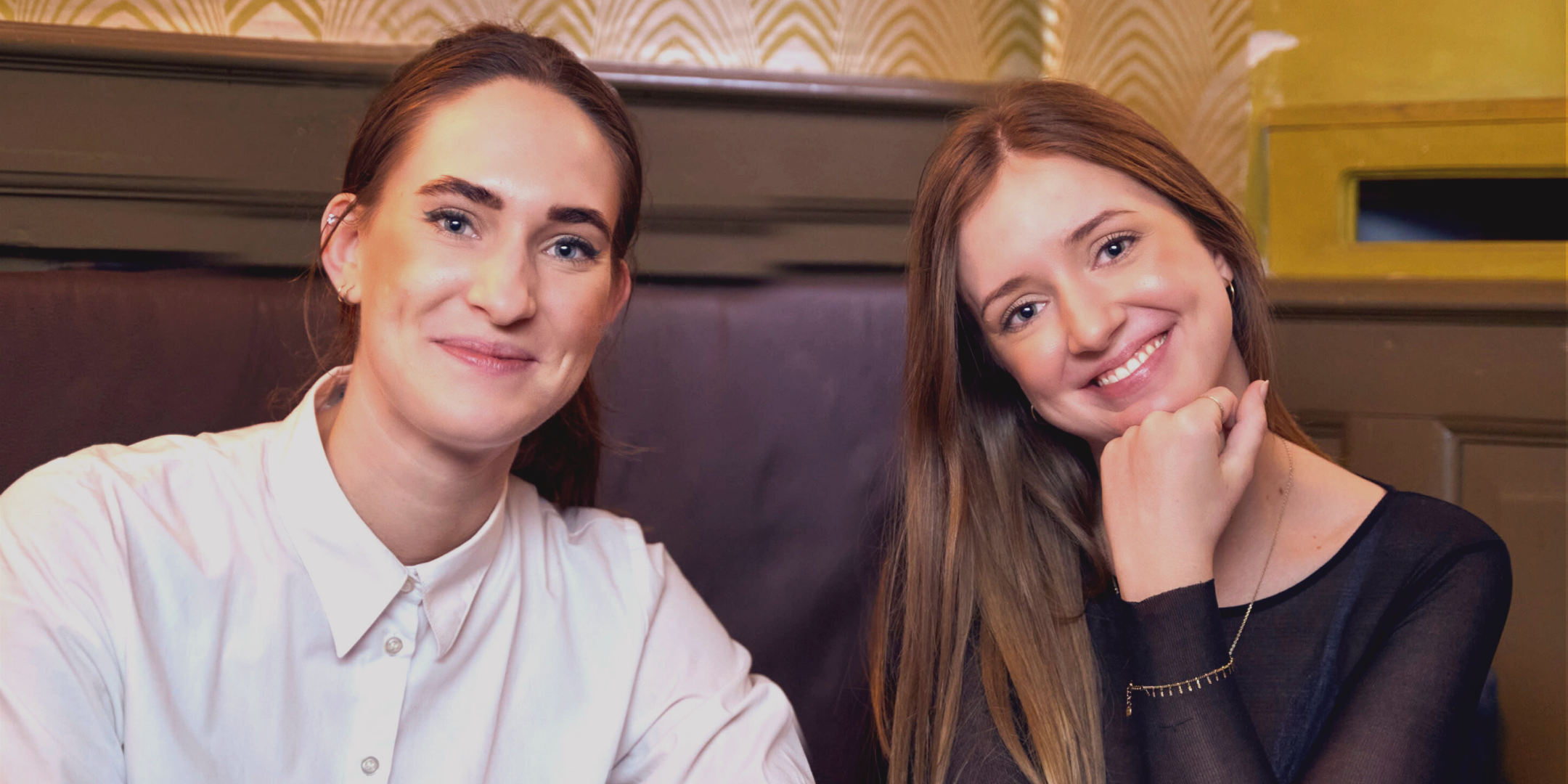
Since Gedulgt opened, Tanne Morville has been part of maintaining a high standard and great atmosphere at what has since become a multi-award-winning cocktail bar. Tanne joined when she was just 19 years old and with zero cocktail experience, turning one gap year into four.
LM: What has been your golden moment in your career so far?
T: After just six months of working at Gedulgt, Bastian (the owner) pulled me aside and said he thought it would be cool to launch something together someday. That was a massive pat on the shoulder, and I realised that this was a career I could continue with. I wasn’t aware that I’d made such a big impression. It was just supposed to be a gap year experience, and now four years later I'm still here.
LM: Is gender discrimination something you’ve had to deal with a lot?
T: Of course sexism occurs, but I haven’t personally been affected by it. But I have seen a lot of female coworkers having their ass grabbed or groped by guests. I think that the more confident you appear, the less discriminating behaviour you’re met with. But biases are there, no doubt. I’m the Executive Manager at Gedulgt, but when we went to the BCA in Stockholm in 2019, everyone immediately assumed that I was Bastian’s girlfriend.
LM: What do you think your fellow managers in the industry should be aware of?
T: As a manager, it’s extremely important to not project your prejudices onto those you are interviewing for the bar. It’s a matter of putting your prejudices and preconceived ideas aside and then hire new staff based on rationale and logic, and not least, their qualifications.
I also think it’s extremely important to be aware of the kind of language you use. That can be really exhausting in the beginning, but down the road, you become more aware of the impact of your words. And that helps to encourage your staff and build a safe and inclusive work environment.
TATJANA BAY, Bartender and R&D at Balderdash, Copenhagen
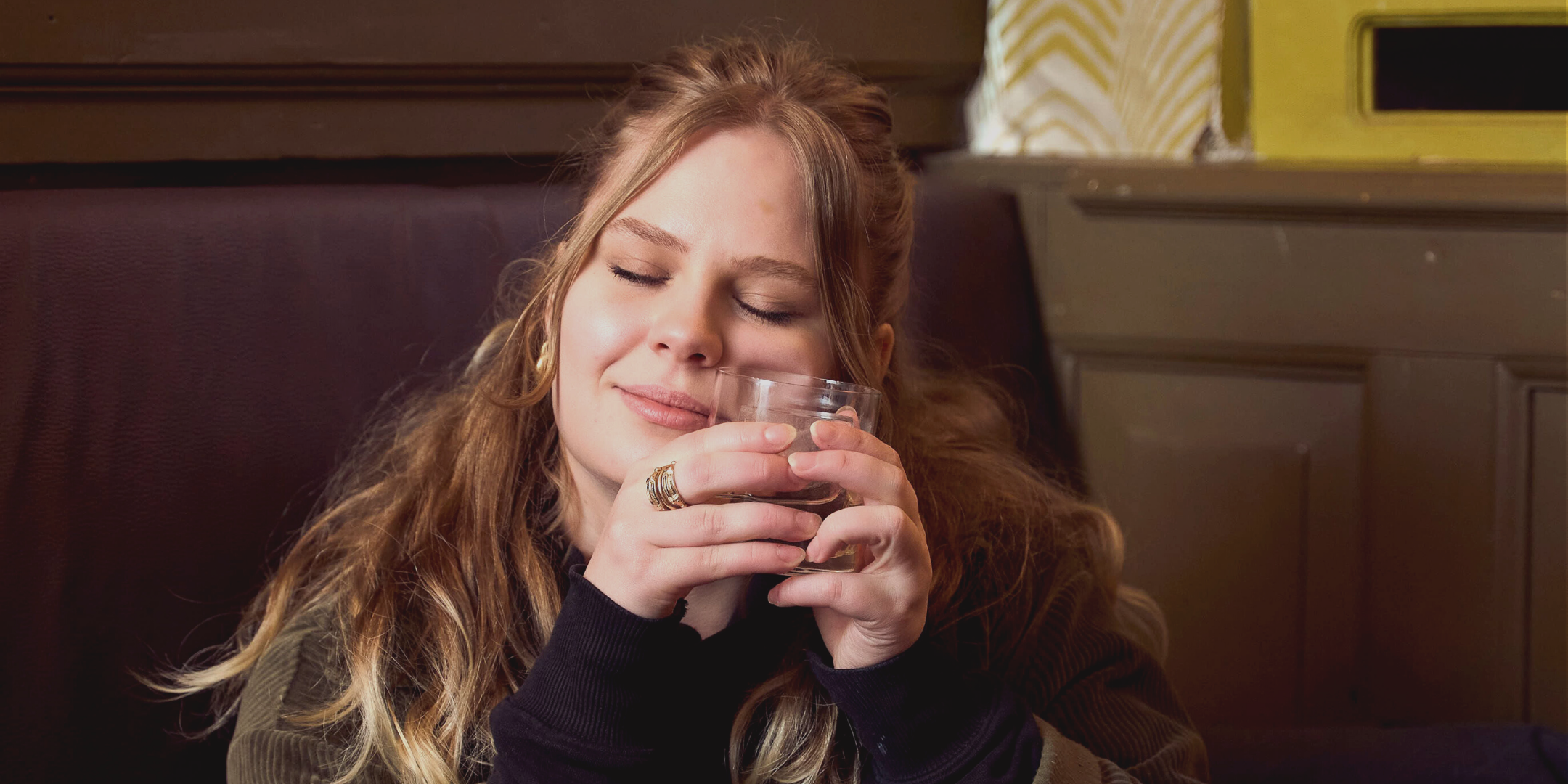
From light engineering to classical philology, Tatjana Bay has been around a few industries before she stumbled into bartending. This July will mark her third year with Balderdash, contributing to both the atmosphere of the bar as well as turning the team’s weird obsession with Midori into mind-boggling cocktails.
LM: You’ve worked in the music industry, studied Latin and Classic Greek, and then landed on a career behind the bar. What was it that made you choose cocktails?
Ta: I had fallen into bartending quite randomly. First I worked at places like Forbrændingen, but then I came to Balderdash part-time. I love the way cocktail bartending combines deep research and honing your craft, but also using your hands. That’s what I found in bartending when I joined Balderdash and I realised that I really enjoy it.
LM: What does your role as R&D together with Frida entail?
Ta: When we do menus at Balderdash, we kind of collaborate between all of us. We start with a broad concept that we then fine-tune. Frida and I would lead, me crunching the numbers and Frida getting creative with fermenting and such. And then Geoffrey (our boss) will normally give the final approval.
LM: At Balderdash, everyone does every role at the bar, but do you sometimes experience that guests look at you differently because you’re a woman?
Ta: I believe that a lot of the questioning of skills in regards to being a woman can be solved very quickly via your attitude and approach to the job. You have to think that sexism and gender biases only get enhanced when you are intoxicated. When I worked at the jazz bar there were drunk people making comments and touching your ass all of a sudden. And in the cocktail industry, there have been incidents with guys talking loud about whether I was a good f*ck or not because they thought I didn’t understand Danish.
But bartending is a weird job when you think about it. It kind of births this voyeuristic moment, and it's you have to talk about yourself to get the guest to talk about themselves. Employees and employers should definitely have a conversation about where you draw the line for acceptable behaviour, and you kind of need to set the rules the minute the guests come in. At Balderdash we have a zero-tolerance policy against all types of discrimination. Whatever vibe you set, your guests will feed off it.
LM: What about from within the industry?
Like bartending, you have a lot of craftsmanship occupations that have been predominantly male, and that’s changing. Inside the industry, I really haven’t been faced with much discrimination or bias, but I am aware of it. It is more unsaid, I would say. I think that true equality will come if we install a hierarchy based on competence: The better you are, the higher up you go. Of course, you need more diversity, but it’s false equality if it’s enforced. The status quo will inevitably always change.
FRIDA JÖNSSON, Bartender & R&D at Balderdash, Copenhagen.
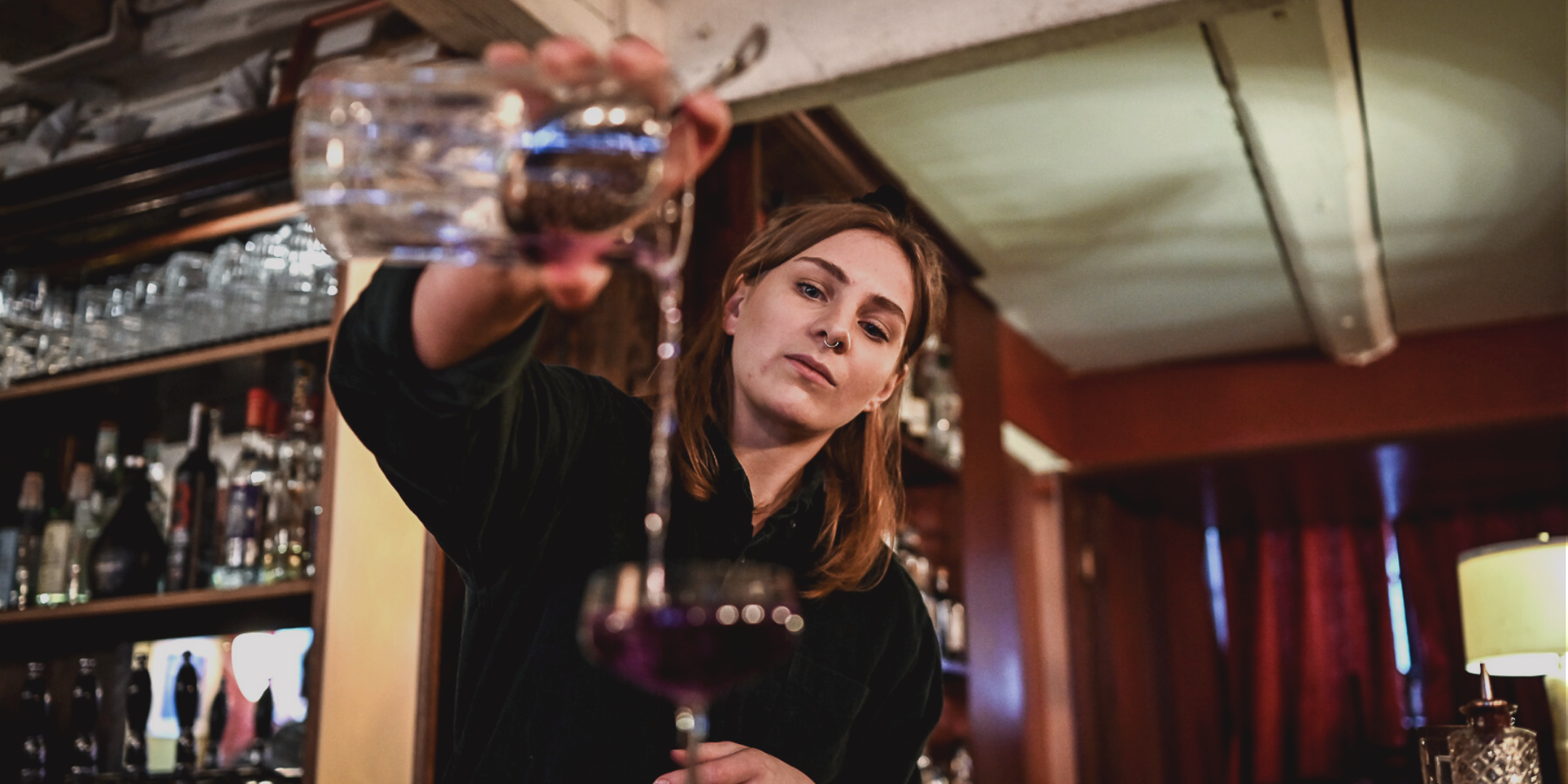
Working as a bar manager in her home country of Sweden, Frida Jönsson knows what it means to take care of the bar. She moved to Denmark because she needed a change of scenery and a challenge. When checking out the growing cocktail and food scene in Copenhagen, she stumbled upon Balderdash and decided to go for it. Now there's no turning back from the rotovap.
LM: What is it that you love about bartending?
Fr: I’ve been working in the hospitality industry for almost 6 years, but I have always been most interested in the bar. Every time you make a cocktail, every time you actually see the faces of people when they drink it; that’s kind of a golden moment and that will keep you going even until 3 am in the morning.
LM: You recently did a collaboration with Empiricial to “celebrate” Donald Trump’s Presidency ending. Tell us about that.
Fr: The cocktail ingredients really reflect my bartending background and what I like to do. It came to be because of my interest in fermentation, and I did a rotovap distilled kombucha that I wanted to showcase.
LM: Have you ever faced challenges in your line of work because of your gender?
Fr: Every day we face different challenges as women. It doesn’t necessarily mean it’s within the industry. There is always gonna be these small things and in the bar, people are looking at you in a different way, it’s also a profession where people are in a flirtatious mood anyway. Whenever I see it coming to a certain point I sense it and turn it around straight away.
But I also see it from other perspectives, and I think women are very outed in this industry. I just think it’s important that you as a woman and also a person can have your opinions and believe in them.
LM: How can we make women believe in the right to have their own opinions?
Fr: I think it starts way before coming into the industry. People need to learn from the beginning. Initiatives that are focusing on and showcasing women is one way, another is to always talk loud about it, acknowledge when something is different and then speak up.
ANTONIA LIND, former Bartender at K-Bar, Copenhagen
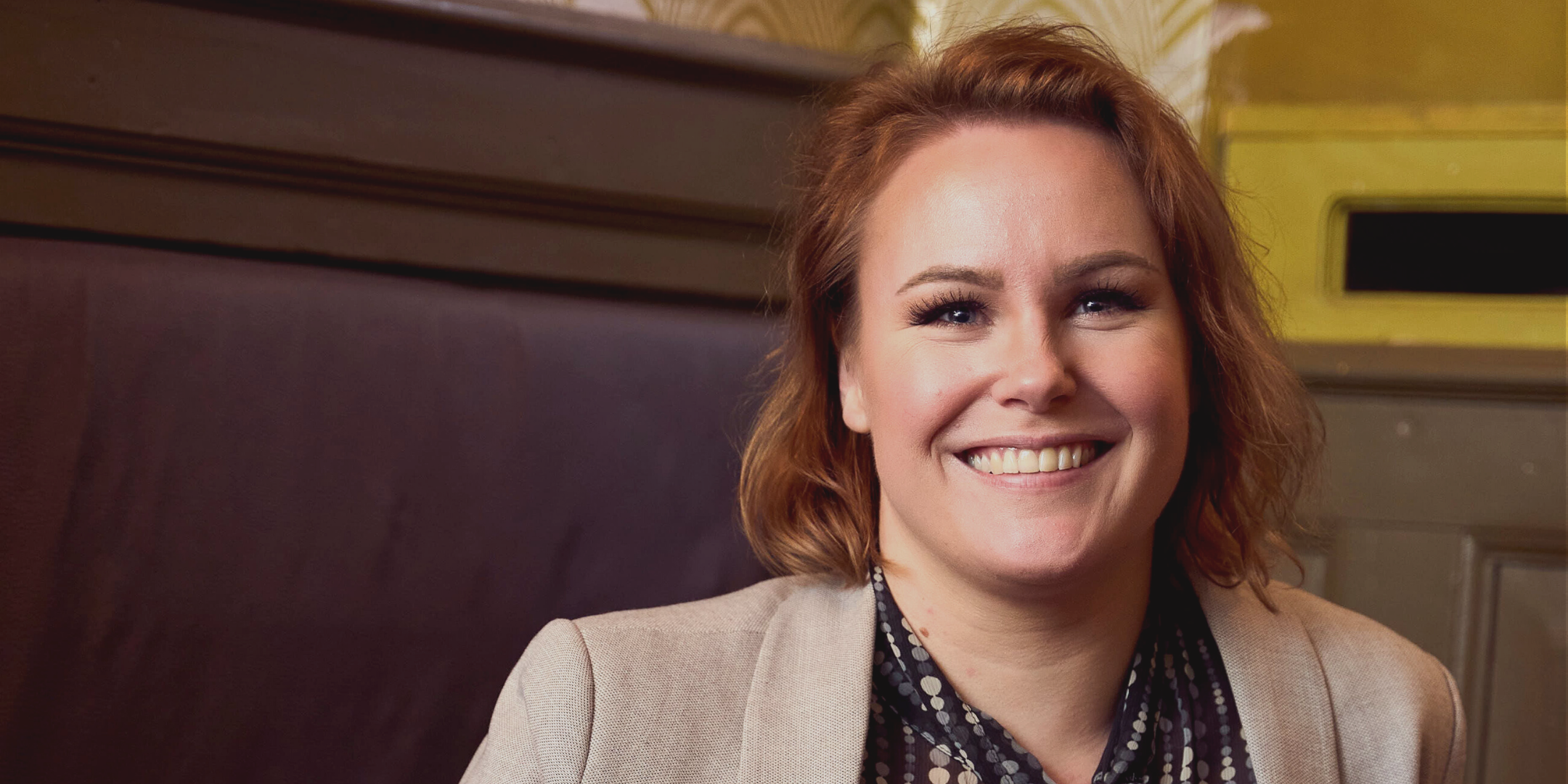
From starting out behind the bar in 2016 to being headhunted for a job, to finally working at K-Bar in Inner City, Antoni Lind has proven that passion and dedication can take you from 0 to 100 in a heartbeat.
LM: Most stumble into bartending when they are students, but you came into bartending later in life. What made you want to become a bartender?
Fr: I didn't know I wanted to be a bartender, the realisation only came when I worked at the nightclub Kultur Bolaget in Malmö. Very quickly, my passion for service and for cocktails paid off, and I was headhunted for a position as a junior bartender at Rosen Bar & Dining, which at the time was amongst the top three bars in Malmö. I couldn’t believe I had gone from zero knowledge to being headhunted. That led me to an interview with MJs Hotel, which was newly opened at the time. It is a flamboyant, high-volume and high-end cocktail bar. Service was really personal and I was allowed to do colourful makeup whilst at work. That's where my "unicorn" was born. Seeing the satisfaction of the guests’ faces was so rewarding. That was the golden moment. My friend then recommended me to apply for K-Bar, and I got the job a couple of months before corona hit. Now I’m trying to figure out my options. We’re all struggling through lockdown but that doesn’t stop us from dreaming of better times.
LM: What are the main challenges you’ve faced as a woman in the industry?
Fr: I feel like women are being evaluated based on our bodies before our skills. Once, I was actually called 'boobylicious' by my previous bar manager, which felt very condescending. And that relates to the second challenge, knowledge on - or lack of - sexual harassment, what it actually is. We need courses on sexual harassment and courses to make people understand what is silent harassment, the condescending behaviour that often exists. Like, how women and men would be treated differently based on appearance, regardless of the level of skills they present.
LM: What can women do to help each other?
Fr: We need to change the narrative around the female bartender. Both men and women will approach me thinking I don't know what I am doing because I am a woman. Men especially tend to think that I will make the cocktails weaker and sweeter because of my gender. I don't think male bartenders receive the same kind of scepticism from guests. More of us should talk about how mezcal, whisky etc. are not male spirits or a male-only option. Certain brands have been promoted as old, male brands, and so, when females that don’t know anything about the industry or spirits think about whisky, they will naturally only see it as being something for old men. We need to change that, by leading by example first and foremost.
What does the future hold for women in food and drink? Join Diageo's Facebook LIVE, 8th March 2021 from 16:00 CET, where bartenders, distillers, chefs, brewers and food startup professionals (and Liquid Matters too!) will share their experiences, challenges and predictions for the times ahead.
Be sure to check out our Instagram @trueliquidmatters where we will be sharing signature cocktails made by the women featured in this article.
